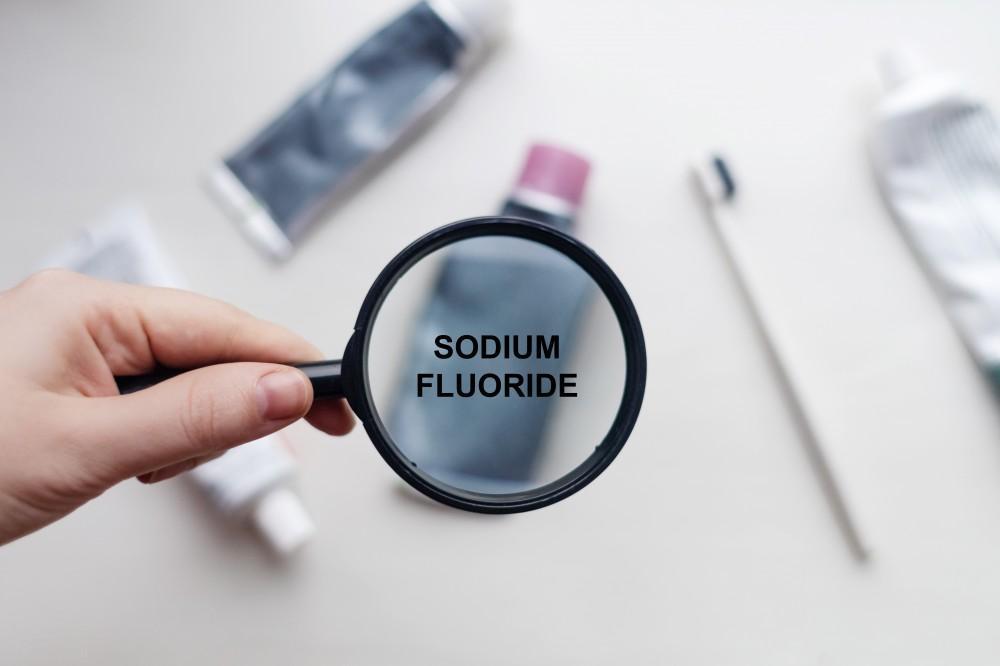
All About Fluoride: Common Myths — and Facts — About “Nature’s Cavity Fighter”

Fighting decay is your dentist’s top priority, and it should be yours, too. Together, you can do a lot to support your long-term dental health — you, through maintaining excellent at-home care and your dentist, by monitoring you carefully and offering the most advanced treatments for dental issues, from restorations to emergency care.
One thing that’s critical to your dental health — but surrounded by controversy — is whether or not you should receive fluoride treatment, or if it should even be present in our water supplies (fluoride is added to most of the water supplies in the municipalities across our country).
In this post, the knowledgeable Expressions in Dentistry dental team shares the facts — and shatters the myths — you may have heard about fluoride, your teeth, and your health.
What is fluoride?
Fluoride is a naturally occurring mineral that’s found in water and certain foods, like seafood, potatoes, oatmeal, and raisins.
The enamel — or outer layer of our teeth — is critical to protecting them from wear, but the continuous process of demineralization and remineralization can become imbalanced and make teeth vulnerable to decay.
Demineralization happens when acids (a mix of plaque and sugar from food) come into contact with enamel and cause mineral loss, while remineralization occurs when minerals like fluoride, calcium, and phosphate from food and water we ingest restore minerals to your enamel.
If a cycle of too much demineralization and too little remineralizations starts and progresses, decay results.
Fluoride is a dental superhero of sorts, because it makes your teeth more resistant to the “bad guys” — the sugar and plaque that comprise those acids.
Fluoride: Truth versus fiction
Fluoride has become a controversial subject, with some claiming that it does everything from cause cancer to fluorosis, a condition that causes discoloration.
Here, we do some truth-telling and myth busting about fluoride, to set the record straight and put your mind at ease.
Myth: Fluoride harms your teeth
The only way that fluoride can hurt your teeth is if you get too much of it, and levels in the United States are carefully regulated. Fluoride is also present in dental products like toothpaste, which we know is able to lower tooth decay rates by up to 40%.
Fact: Fluoride is “Nature’s Cavity Fighter”
Whether you’re a child or an adult, consider flouride your friend.
As we mentioned, it has the amazing ability to protect your teeth from decay, and for children under six years of age, fluoride integrates into the teeth themselves and makes it harder for acids to do their demineralizing damage.
Fluoride also interferes with acid production in both kids’ and adults’ teeth, and it hastens remineralization as well.
Myth: Using fluoride should be a person’s individual choice.
Fluoride opponents link this belief to the erroneous and unproven idea that fluoride is dangerous and toxic.
Fact: Fluoridated water makes communities healthier
Fluoridated water supports community health. It’s impossible to make a “no fluoride” choice, since it’s in water naturally, but it’s important to ensure that the proper amount to fight decay is present in our water, which is why it’s added.
The US Department of Health and Human Services (HHS) recommends a fluoride level of 0.7 milligrams per Liter (mg/L) for drinking water.
Myth: Communities should end fluoridation programs because it will save money
Opponents make the case that ending water fluoridation is a smart fiscal move.
Fact: Fluoridation actually saves money — and teeth
Fluoridated water protects people from costly dental treatment down the road. Research has shown that every $1 that goes toward paying for fluoridation saves a whopping $38 in dental treatment costs that won’t be needed.
Myth: Fluoride causes serious health problems, like cancer and autism
Fluoride opponents have linked fluoride to these and other major health conditions, but these assertions aren’t backed up by credible data.
Fact: Fluoride hasn’t been linked to any serious health conditions
Since fluoride was first introduced to water supplies almost eight decades ago, no credible research exists that links fluoridated water to major health concerns, such as cancer or negative effects on children’s IQ or cognitive neurodevelopment.
Fluoride is an issue that’s surrounded by controversy, and much of it is caused by false claims backed by bad — or nonexistent — science.
Along with brushing and flossing daily, using fluoridated water, getting fluoride treatments at our office, and using fluoridated toothpaste can be some of your strongest weapons against tooth decay.
Additionally, when you bring your child into our office for their first visit, we evaluate whether they are getting the proper amount of fluoride, discuss the level of fluoridation in your home’s water, and talk about whether your child needs in-office fluoride treatment.
Contact our Folsom office to make an appointment with your Expressions in Dentistry dental team member today by calling 916-983-6767 or booking online.
You Might Also Enjoy...


Pediatric Oral Health: 5 Invaluable Benefits of Dental Sealants

Fast Track Your Smile Straightening With FastBraces in the New Year

Help Your Smile Sparkle for the Holidays with Teeth Whitening

Advantages of Tooth-Colored Fillings Over Silver Fillings

